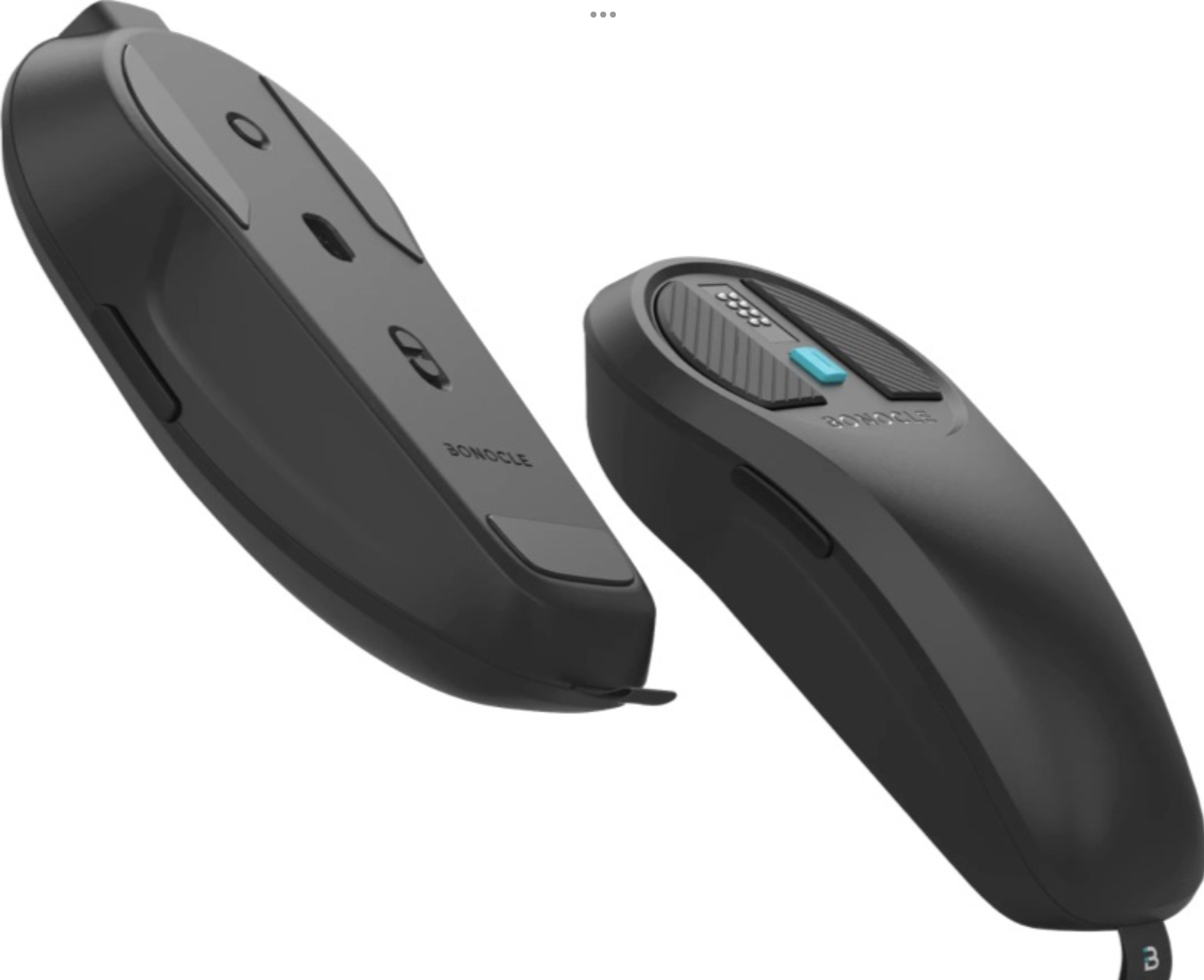St. John’s-based Bonocle is turning its attention to commercialization in the new year as it looks to bring its accessibility tool for interacting with smartphones and tablets via braille to market in North America and the Middle East.
Founded in 2016, the company has developed a handheld Bluetooth device with a thumbpad capable of representing the braille alphabet via a set of eight bumps that can be raised and lowered to depict different letters. In an interview, chief operating officer Ramy Abdulzaher said the device so far only works with Bonocle’s own suite of iPhone and iPad apps, but that it will eventually be compatible with every app on a device.
Abdulzaher and chief executive Abdelrazek Aly were inspired to co-found Bonocle when they were both students at Qatar University. Aly was involved in a car accident, which led him to visit the institution’s accessibility centre for help writing his exams. While there, the duo met a blind student who was enrolled in some of the same classes.
They asked the student how he was able to read his textbooks and understand the contents of the slideshows that accompany university lectures and learned that he used a cumbersome, expensive device called a braille translator. Abdulzaher and Aly resolved to improve on the system.
“The early stage was a bit of a learning experience and we got to see a lot more of the problems that a lot of people were facing,” said Abdulzaher.
“For example, how hard it was for them to learn braille, how hard it was for their parents, who sometimes had to leave their jobs just to be able to support their kids learning braille.”

The Bonocle device
Now, Abdulzaher is working on a master of business administration degree at Memorial University and Bonocle has been receiving backing from the Memorial Centre for Entrepreneurship and the Genesis Centre, including via the startup hub’s Evolution accelerator.
With Bonocle’s hardware and software finalized, Abdulzaher said the company will soon start outsourcing manufacturing to focus on design and business development work. The details of Bonocle’s go-to-market strategy will vary depending on the jurisdiction, since many governments offer funding for students and other people with disabilities to purchase assistive devices. But the details of such programs vary widely. In Atlantic Canada, for example, provincial departments of education usually allocate the funding.
“There are also some smaller institutions and smaller schools that have private funding or want to rush a bit on the purchase process, and they are willing to purchase themselves, so they allocate a specific budget to it or they already have a budget that they had previously allocated to another device,” said Abdulzaher.
He and Aly raised a $1 million round of angel funding while they were in Qatar, and are now looking to hire education specialists, along with app and game designers, who will be located in North America.
“Even though our market is niche and that comes with its own complexity, we don’t believe it should reduce the importance of the problem we’re trying to solve,” said Abdulzaher.
“We’re always trying to advocate for braille, make braille easier to access, push for new solutions that can help with learning braille or using braille.”










